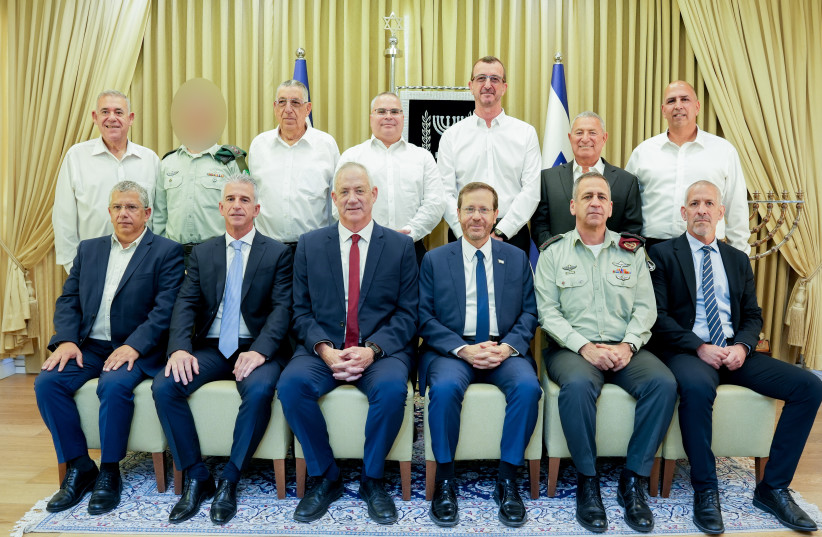The country’s spy satellites and two other classified projects, including an extended Mossad one, have been awarded the Israel Defense Prize, the country’s top security prize, President Isaac Herzog’s office announced on Tuesday.
The awards were for outstanding projects and activities that have contributed to the security of the State of Israel and to its qualitative edge on the battlefield, both in terms of technology and operations.
“Against Iranian aggression there is a need not merely for cooperation, but for building joint regional forces under American leadership – we are pushing for this,” Defense Minister Benny Gantz said.
“Also during this time period, our enemies do not let up and threaten our security, our land and externally [Israelis overseas], Herzog said. “The long arm of Israel will reach to any place that it needs to in order to defend our citizens.”
With concern continuing over Iran’s growing hostility in the region, Israel, with its army of satellites, keeps a close eye on the Islamic Republic. The latest satellite – Israel Aerospace Industries and Elbit Systems’ Ofek 16 – was launched in July 2020 in a joint operation of the Defense Ministry’s Space Department and IAI.

The satellite is operated by the IDF’s 9900 Unit in the Military Intelligence Directorate.
Like other reconnaissance satellites launched by Israel since its satellite program began in 1988, Ofek 16 is used to monitor threats facing the country. The reconnaissance satellite carries Elbit’s electro-optic, high-resolution camera, which can photograph 15 sq. km. (six sq. miles) with each shot at a resolution of 50 cm. (20 inches) from an altitude of 600 km. (373 miles).
There are only 12 other countries with satellite-launching capabilities like those of the Israeli Air Force. The satellite industry is a key component of the Jewish state’s strategic military capabilities. Though the exact number of Israeli satellites in orbit remains classified, they are reported to number in the double digits.
And while most satellites have an operational lifetime of several years, satellites built by IAI – like the Ofek 5 that was launched in 2002 – continue to operate, far longer than the design specifications said it would.
A parallel ceremony was held at the Defense Ministry in late May.
“The satellites serve the defense establishment 365 days a year, 24 hours a day, and provide quality and reliable intelligence in real time,” the ministry said.
Other winners
THE OTHER TWO projects that won the prize remain largely classified and involve security organizations. One was led by the 8200 Unit in Military Intelligence, Mossad, Shin Bet (Israel Security Agency) and the Defense Ministry’s director of security of the defense establishment.
The goal of the project was to maintain Israel’s qualitative advantage in various strategic defense areas.
Lasting about a decade, it saw the intelligence agencies “work in a combined effort, in a variety of bold and innovative ways while facing enormous technological challenges,” the ministry said. It said that the successes have been a “main cornerstone for a wide range of activities that have directly contributed, many times, to the security of the State of Israel.”
Another project that won the prize was of the Mossad, the Defense Ministry’s Administration for the Development of Weapons and Technological Infrastructure (MAFAT) and defense industries that was aimed at maintaining Israel’s qualitative edge in the face of strategic threats.
“The Israel Defense Prize reflects more than anything the integration of the arms of all security bodies. We see this on the battlefield every day, when the IDF, Shin Bet, Mossad and Israel Police work together,” Gantz said in congratulating the winners, adding that the breakthrough defense projects “provide us with security and technological superiority.”
“We will continue to push Israeli developments forward and strengthen Israel’s security.”
Defense Minister Benny Gantz
“We will continue to push Israeli developments forward and strengthen Israel’s security,” he said.
The award has been presented annually for more than 60 years to people and projects based on technological achievements that have made a significant contribution to the country’s security and provide unique operational responses. It is named after Elijah Golomb, the commander of Israel’s pre-state Hagana militia.
